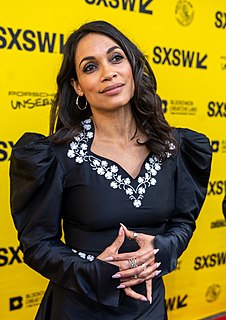A Quote by Jens Martin Skibsted
Democracy is not just about voting but about informed voting. If democracy doesn't have access to reliable sources of information and instead relies on social proof, then there is no way of distinguishing between junk evidence and actual knowledge.
Related Quotes
If you rely on the media for your information, to educate yourself about the candidates and what issues are facing the country, then you get just part of the equation. I think it's important that we as citizens of this democracy take the responsibility to get as much information as possible before we go into the voting booth.
At the end of the day, these are issues that need to be discussed: femicides, among other things - immigrant rights, women's' rights, indigenous people's rights, animal rights, Mother Earth's rights. If we don't talk about these topics, then we have no place in democracy. It won't exist. Democracy isn't just voting; it's relegating your rights.
Touch-screen voting machines absolutely cannot be relied upon. Our recommendation was optiscan ballots - where you actually have custody of the actual ballots after the ballots have been passed through the computer. That's the most reliable system to use. And people should not use the electronic voting machines. Even electronic voting machines with paper trails can be manipulated.
I think nuance is very important to have in the conversation, nuance that's been lacking for a long time. A lot of voting organizations only exist every four years, putting all this money into "your voice is important!" Wouldn't that be nice, if that's all it took? Voting is the first political action for most people. But if you don't follow up then voting is not actual participation but just a one-off.
We passed the Voting Rights Act of Virginia, which restores and builds on key provisions of the 1965 federal Voting Rights Act that was gutted by the United States Supreme Court. Voting is fundamental to our democracy, and this legislation is a model for how states can ensure the integrity of elections and protect the sacred right to vote.








































